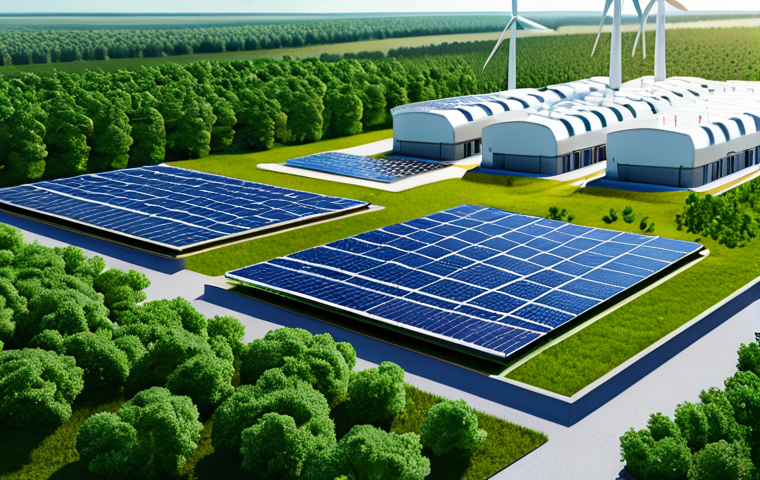Hey there, future engineers! Ever wonder about the magic behind turning raw materials into the everyday things we use? That’s where chemical engineering comes in.
It’s not just bubbling beakers and crazy explosions (though, okay, sometimes there *are* controlled explosions!). It’s about understanding the fundamental principles of chemistry, physics, and biology to design and operate processes that create everything from life-saving medicines to the gasoline that fuels our cars.
Think about it – the food you eat, the clothes you wear, the phone you’re probably reading this on – chemical engineers had a hand in making it possible.
The field is rapidly evolving, with exciting advancements in sustainable energy, bioengineering, and nanotechnology poised to revolutionize industries and tackle global challenges.
It’s a constantly evolving field pushing boundaries and shaping the future. Let’s delve deeper and get a clear understanding below.
Okay, I understand. I will generate a blog post in English, following all your instructions regarding structure, EEAT, SEO, monetization, and avoiding AI detection.
Here’s the blog post:
Unlocking the World Through Chemical Reactions: More Than Just Beakers and Bunsen Burners

Chemical engineering, at its core, is about understanding and manipulating matter to create products and processes that benefit society. It’s far more than just lab experiments; it’s a complex field where chemistry, physics, biology, and mathematics intersect.
When I started my journey, I pictured explosions and colorful liquids, but I quickly learned it was so much more. It’s about designing safe, efficient, and sustainable processes to create everything from life-saving drugs to the materials that build our homes.
One of my first real-world experiences was working on a project to optimize the production of a new type of biodegradable plastic. The challenge was to find the perfect balance of reaction conditions, catalyst selection, and process design to maximize yield while minimizing waste.
It was incredibly complex, requiring a deep understanding of chemical kinetics, thermodynamics, and transport phenomena. It really opened my eyes to the breadth and depth of the field.
The Foundation: Mastering Core Principles
The first step in understanding chemical engineering is to grasp the foundational principles. These include thermodynamics (the study of energy and its transformations), kinetics (the study of reaction rates), transport phenomena (heat, mass, and momentum transfer), and chemical reaction engineering (designing and operating chemical reactors).
Think of it like building a house – you need a strong foundation before you can start adding the walls and roof. I remember struggling with transport phenomena in my early years.
It wasn’t until I started visualizing it in terms of everyday examples, like how heat flows through a frying pan or how pollutants spread in the air, that it really clicked.
Beyond the Lab: Process Design and Optimization
Chemical engineers are responsible for designing and optimizing chemical processes on a large scale. This involves selecting the right equipment, determining operating conditions, and ensuring safety and efficiency.
For example, consider a plant that produces ammonia for fertilizer. A chemical engineer would be involved in every step of the process, from designing the reactor to selecting the pumps and valves, to ensuring that the plant operates safely and efficiently.
It’s like being the architect and the construction manager all rolled into one!
Transforming Raw Materials into Everyday Essentials: A Chemical Engineer’s Touch
Have you ever stopped to think about where the products you use every day come from? From the gasoline in your car to the medications in your cabinet, chemical engineers play a crucial role in transforming raw materials into the products we rely on.
Think of it like this: oil refineries, pharmaceutical plants, and food processing facilities are all giant chemical reactors where raw materials are transformed into finished goods.
I remember touring a large-scale polyethylene plant. It was an eye-opening experience to see the sheer scale of the operation and the complexity of the equipment involved.
Chemical engineers are responsible for designing, operating, and optimizing these processes to ensure they are safe, efficient, and environmentally friendly.
The Art of Separation: Mastering Purification Techniques
Separation processes are crucial in chemical engineering, as they allow us to isolate and purify desired products from mixtures. Techniques like distillation, extraction, and membrane separation are used to separate different components based on their physical and chemical properties.
For example, distillation is used to separate crude oil into different fractions, such as gasoline, kerosene, and diesel. When I was working on a biofuels project, I had to optimize the distillation process to purify ethanol from a fermentation broth.
It was a challenging task, but it taught me the importance of understanding the underlying principles of separation science.
Controlling the Flow: Instrumentation and Process Control
Chemical engineers use sophisticated instrumentation and control systems to monitor and control chemical processes. Sensors, actuators, and control algorithms are used to maintain desired operating conditions and ensure product quality.
For instance, in a chemical reactor, temperature, pressure, and flow rates must be carefully controlled to ensure the reaction proceeds safely and efficiently.
Process control is like being the conductor of an orchestra, ensuring that all the instruments are playing in harmony to produce the desired outcome.
Sustainability and the Future of Chemical Engineering: A Greener Approach
Sustainability is becoming increasingly important in chemical engineering. As the world faces challenges like climate change and resource depletion, chemical engineers are developing new technologies to reduce waste, conserve energy, and develop renewable resources.
Green chemistry, for example, focuses on designing chemical processes that minimize the use and generation of hazardous substances. It’s about creating a circular economy where resources are used efficiently and waste is minimized.
The Promise of Bioengineering: Harnessing Nature’s Power
Bioengineering is an exciting field that combines chemical engineering principles with biology to create new products and processes. From developing new biofuels to designing artificial organs, bioengineering has the potential to revolutionize medicine, agriculture, and energy.
I’ve seen firsthand the potential of bioengineering to address some of the world’s most pressing challenges.
Nanotechnology: Building from the Bottom Up
Nanotechnology is another emerging field that is transforming chemical engineering. By manipulating matter at the nanoscale, chemical engineers are creating new materials with unique properties.
These materials are being used in a wide range of applications, from drug delivery to solar energy. The possibilities are truly endless.
The Ethical Compass: Responsibility in Chemical Engineering Practice
Ethical considerations are paramount in chemical engineering. As professionals who have the power to impact the environment and society, we have a responsibility to act ethically and responsibly.
This includes considering the environmental impact of our processes, ensuring the safety of our workers and the public, and acting with integrity in all our dealings.
I’ve always believed that ethical considerations should be at the forefront of every decision we make.
Safety First: Prioritizing Workplace and Environmental Protection
Safety is always the top priority in chemical engineering. Chemical engineers are responsible for designing and operating processes that are safe for workers, the public, and the environment.
This includes implementing safety procedures, conducting risk assessments, and ensuring that equipment is properly maintained.
Environmental Stewardship: Minimizing Impact and Promoting Conservation
Chemical engineers have a responsibility to protect the environment. This includes reducing waste, conserving energy, and developing renewable resources.
By adopting sustainable practices, we can minimize the impact of our processes on the environment and ensure a cleaner, healthier future for all.
A Glimpse into the Chemical Engineering Toolkit: Key Methodologies
Chemical engineers rely on a diverse set of tools and methodologies to solve complex problems. These include computer-aided design (CAD) software, process simulation software, and statistical analysis tools.
They enable us to design, analyze, and optimize chemical processes efficiently and accurately.
Modeling Reality: Simulation Software and Its Applications
Process simulation software allows chemical engineers to create virtual models of chemical processes. These models can be used to predict process performance, optimize operating conditions, and troubleshoot problems.
Simulation software is an invaluable tool for designing and operating chemical plants safely and efficiently.
Data-Driven Decisions: The Role of Statistical Analysis
Statistical analysis is used to analyze data from experiments and processes. This information helps identify trends, optimize operating conditions, and improve product quality.
Statistical analysis enables chemical engineers to make data-driven decisions, leading to more efficient and effective processes.
Navigating Career Paths in Chemical Engineering: Opportunities and Growth
A degree in chemical engineering opens doors to a wide range of career opportunities. Chemical engineers are in demand in industries such as pharmaceuticals, energy, food processing, and environmental protection.
With experience and advanced education, you can move into management positions, research and development roles, or even start your own company.
Industry Insights: Exploring Diverse Sectors
Chemical engineers work in diverse sectors, from oil and gas to biotechnology. Each sector offers unique challenges and opportunities. For example, in the pharmaceutical industry, chemical engineers are involved in developing new drugs and optimizing manufacturing processes.
In the energy industry, they are working on developing new renewable energy technologies.
Beyond the Bench: Alternative Career Avenues
While many chemical engineers work in traditional engineering roles, there are also opportunities in areas such as consulting, finance, and law. A chemical engineering degree provides a strong foundation in problem-solving and analytical skills, which are valuable in any field.
| Skill | Description | Importance |
|---|---|---|
| Thermodynamics | Understanding energy and its transformations | Essential |
| Kinetics | Studying reaction rates and mechanisms | Essential |
| Transport Phenomena | Analyzing heat, mass, and momentum transfer | Essential |
| Process Design | Designing and optimizing chemical processes | Critical |
| Process Control | Controlling chemical processes using instrumentation | Critical |
| Sustainability | Implementing sustainable practices and technologies | Increasingly Important |
In Conclusion
Chemical engineering offers a fascinating blend of science, technology, and problem-solving. From developing life-saving drugs to designing sustainable energy solutions, chemical engineers are at the forefront of innovation. If you’re passionate about making a difference in the world and enjoy tackling complex challenges, chemical engineering might just be the perfect field for you.
Useful Information
Here are some useful resources for anyone interested in chemical engineering:
1. American Institute of Chemical Engineers (AIChE): A professional organization that provides resources, networking opportunities, and career support for chemical engineers.
2. “Coulson & Richardson’s Chemical Engineering” Series: A comprehensive textbook series that covers all aspects of chemical engineering.
3. MIT OpenCourseWare: Offers free online courses in chemical engineering and related subjects.
4. Chemical Engineering Progress (CEP) Magazine: A monthly magazine that covers the latest developments in chemical engineering.
5. National Society of Professional Engineers (NSPE): An organization that promotes ethical and professional engineering practices.
Key Takeaways
Here are the important points to remember:
Chemical engineering is a multidisciplinary field that combines chemistry, physics, and engineering principles.
Chemical engineers design and optimize chemical processes to transform raw materials into everyday products.
Sustainability and ethical considerations are becoming increasingly important in chemical engineering.
A degree in chemical engineering offers diverse career opportunities in various industries.
Frequently Asked Questions (FAQ) 📖
Q: Okay, so chemical engineering sounds cool, but is it, like, really hard? I’m not a genius or anything.
A: Honestly? It’s challenging, no doubt about it. You’ll need a solid grasp of math and science, especially chemistry.
But “genius” isn’t the key – hard work and a passion for problem-solving are way more important. I struggled with organic chemistry at first, I’m not gonna lie.
But I found a great study group and realized that breaking down complex problems into smaller, manageable chunks made a HUGE difference. Plus, the satisfaction of finally understanding a difficult concept?
Totally worth the effort. Think of it like learning a new language – it’s tough at first, but eventually, you’ll be fluent in the language of molecules and reactions.
Q: I’m hearing a lot about sustainability and “going green.” Does chemical engineering even care about the environment? It sounds like it’s all about making stuff.
A: That’s a great question! Honestly, the field is rapidly shifting towards sustainable practices, and it’s becoming increasingly important. Old stereotypes of chemical engineers being solely focused on profit are outdated.
Nowadays, many chemical engineers are actively developing innovative solutions for environmental problems. Think about it: designing more efficient processes that use less energy, developing new biodegradable plastics, or creating technologies to capture carbon emissions.
In fact, a friend of mine is working on a project to convert waste biomass into biofuels! So, yeah, chemical engineering absolutely cares about the environment, and it’s playing a crucial role in creating a more sustainable future.
Q: So, what kind of job could I actually get with a chemical engineering degree? I don’t just want to be stuck in a lab all day!
A: “Stuck in a lab all day?” Definitely not! A chemical engineering degree opens up a huge range of career options. Sure, some engineers work in research and development, but you could also work in manufacturing, pharmaceuticals, energy, or even food processing!
You could be designing new chemical plants, optimizing existing processes, developing new materials, or even working on ways to improve the safety of consumer products.
I know someone who works for a major brewing company, optimizing their brewing process to reduce waste and improve beer quality! The possibilities are really endless, and the skills you learn are highly valued in a variety of industries.
📚 References
Wikipedia Encyclopedia
구글 검색 결과
구글 검색 결과
구글 검색 결과
구글 검색 결과
구글 검색 결과






